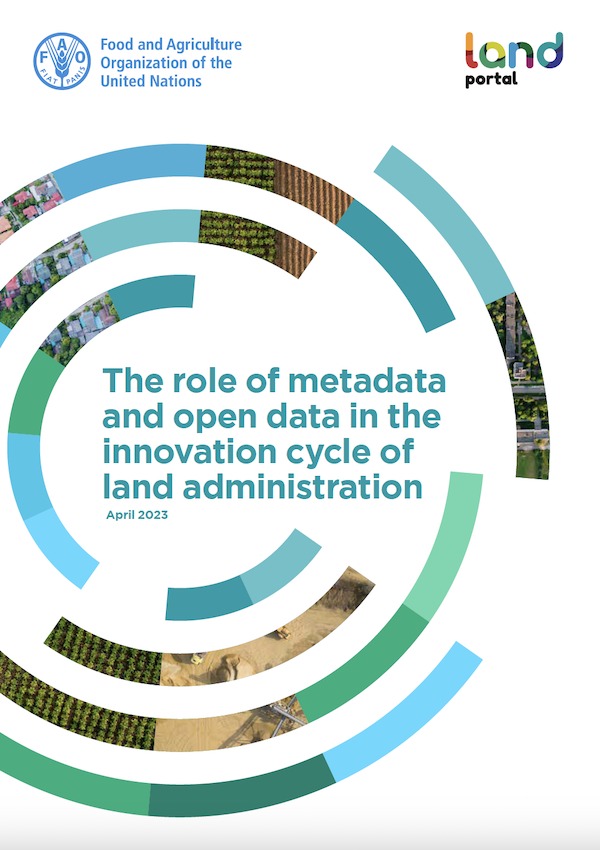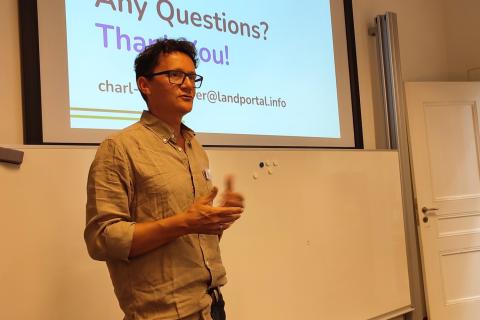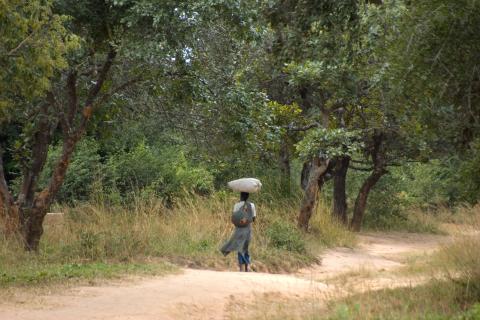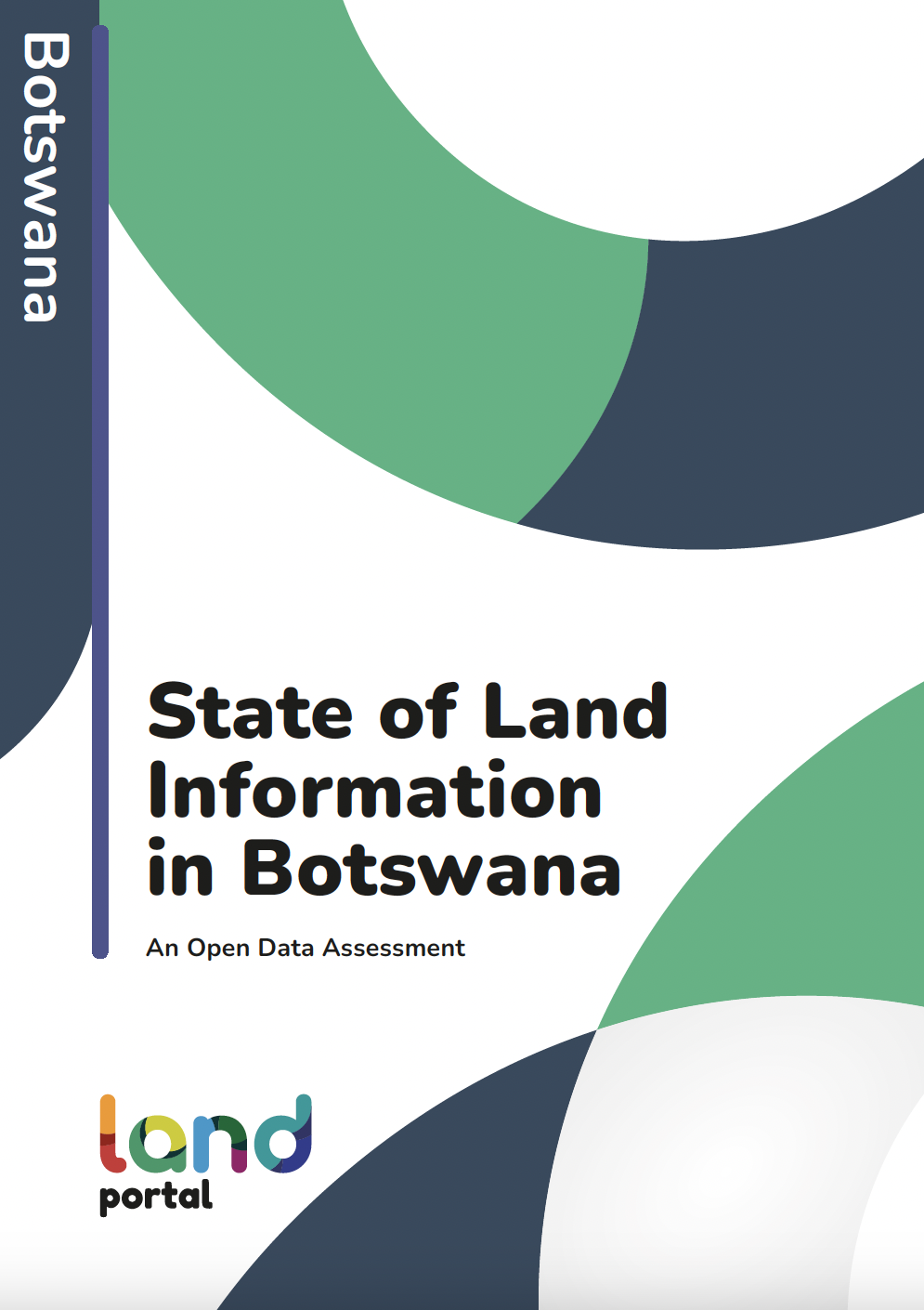
Topics and Regions
Neil Sorensen joined the Land Portal as its Communications Specialist in October 2015. He has extensive experience leading communications for international organizations and developing relationships with civil society, donors, intergovernmental agencies, the media and the private sector. Previously, Neil worked for the International Fund for Agriculture Development (IFAD) as a Governing Bodies Officer and Strategic Adviser to the Secretary of IFAD. He has also led communications for three international organizations, including the International Land Coalition, the International Federation of Agricultural Producers (IFAP) and the International Federation of Organic Agriculture Movements (IFOAM). He holds a Master’s degree in Global Diplomacy from the University of London School of Oriental and African Studies (SOAS) as well as a Bachelor’s degree with a double major in German and Sociology from St. Cloud State University.
Details
Location
Contributions
Displaying 151 - 160 of 1156State of Land Information Index

SOLIndex
TRACKING THE STATE OF LAND INFORMATION
A new indicator from the Land Portal to establish a benchmark and diagnostic tool to make land related information more actionable and to complement existing land governance systems.
We ask the question:
How COMPLETE and OPEN is land data and information around the world?
About
The Land Portal Foundation is developing the State of Land Information Index (SOLIndex), a benchmark and diagnostic tool that tracks the openness of land data globally. The primary challenge the Foundation aims to address is the inaccessibility of poorly managed and localized land data. The SOLIndex aims to make land information more available and accessible at the country level.
Why SOLIndex
Access to information is not a luxury but a fundamental right, crucial for achieving good land governance and access to services such as water, sanitation, and nutrition. It's a core issue in the Sustainable Development Goals (SDGs) and a fundamental right under the African Charter on Human and Peoples Rights. The SOLIndex supports transparency, improves decision-making, and provides a diagnostic tool for policymakers, land data custodians, researchers, and practitioners, by exploring the openness of land data at the global and national level.

The SOLIndex Framework
The SOLIndex is based on a framework that evaluates land administration functions and the need for services related to land. It assesses the openness and accessibility of land data by understanding the availability of public sector information and evaluating its openness to provide globally comparable indicators. Four core data categories are identified: tenure data, land use data, land value data, and land development data. Not all categories apply to every country, and thus, the SOLIndex offers flexibility in data interpretation.
The SOLIndex examines key questions such as how much land data is online, accessible, free, updated timely, accompanied by metadata, uses standards, downloadable, openly licensed, machine-readable, and available as linked data. It provides five points of entry for exploring the state of land data:
- Big-picture global score
- Close look at country-level diagnostics
- Deep-diving into individual “open” criteria
- Mix + match exploration / downloads
- Deep-diving by types of land data
Implementation and Future Steps
The Land Portal Foundation plans to conduct a pilot project in 15 countries by the end of 2023 and expand to include more than 100 countries by 2025. It is actively forming partnerships with entities such as the Land Matrix, Prindex, LANDex, the FAO and the Global Data Barometer to build a broad alliance for the indicator's use and adoption.
Initial results from completed work in pilot countries show positive trends, particularly in Africa, where over 50% of countries have passed access to information laws. This demonstrates a growing recognition among governments that access to information is a fundamental issue that needs to be addressed. The SOLIndex aims to provide a comprehensive picture of land data openness worldwide, aiding decision-making, promoting transparency, and facilitating targeted interventions to enhance data accessibility and interoperability.
Partnerships
The Land Portal Foundation is also collaborating with organizations like the FAO's Global Land Observatory, International Land Coalition's LANDex, Transparency International and the Global Data Barometer to ensure alignment and complementarity.
Contact
If you're interested in learning more about the SOLIndex, or in forming a partnership with the Land Portal Foundation, please contact us at charl-thom.bayer@landportal.info. We look forward to working together to make land data more open and accessible.
Introduction to IKM vines - beta video
A work in progress: a video account of the development of IKM vines, with background and explanations of the terms used in this technical development.
Scaling bottom-up or community-based initiatives towards fair and inclusive land governance
This panel session reflected on the definition of ‘scaling-up’ with experts from the field bridging experiences from the ground to the theoretical concept of scaling. The focus lied on scaling for increased tenure security – geographically and/or institutionally. Reflections were given on what was scaled, why, how scaling unfolds and what has been learned – in the field of land governance. The session was organized by LAND-at-scale. Scaling is at the heart of both the name as well as the strategy of the LAND-at-scale program (LAS).
The role of metadata and open data in the innovation cycle of land administration
This publication discusses the importance of open data as a tool for inclusive land governance. It introduces and describes open data, land governance functions, and metadata. It provides an in-depth looks at AGROVOC, the controlled vocabulary about agriculture and related sciences coordinated by FAO for more than 40 years, and LandVoc, a sub-vocabulary dedicated to the land sector. Using these two examples, the article explores why structured metadata is integral for open data to support innovation and improvements in land administration.
Tracking the State of Land Information
https://landportal.org/event/2023/02/landac-conference-2023 At the Land Portal Foundation, we advocate for open land data and recognize the importance of land data in driving progress in support of sustainable development. We aim to engage stakeholders and develop supportive measures to advocate for the increased accessibility of land information and support capacity building in this regard. The current challenge we face is the inaccessibility of poorly managed land data, often limited to localized sources and overshadowed by information from large organizations. We emphasize the need to make information more available and accessible at the country level.
State of Land Information Reports Unveil Insights on Botswana and Zambia
Two comprehensive State of Land Information (SOLI) reports have been released, providing in-depth assessments of the land data and information ecosystems in Botswana and Zambia. These reports examine the availability of land information and evaluate its compliance with open data standards. The findings highlight the strengths and weaknesses of each country's land information management practices and offer insights for targeted interventions.
State of Land Information in Zambia
This State of Land Information (SOLI) report is an analysis of the current state of land data in Zambia, assessing the availability of land information and the compliance of this information with open data standards.
State of Land Information in Botswana
This State of Land Information (SOLI) report is an analysis of the current state of land data in Botswana, assessing the availability of land information and the compliance of this information with open data standards.
The aim of this report is to serve as a diagnostic for the land information ecosystem in Botswana and enable targeted interventions for improved information management.
Webinar Recap: The State of Land Data in Africa
The State of Land Data: Transforming Africa Into a Powerhouse of the Future" took place on June 22 and featured five speakers. The event was organized by a team of organizations including the Land Portal Foundation, NELGA, GIZ and German Cooperation.









